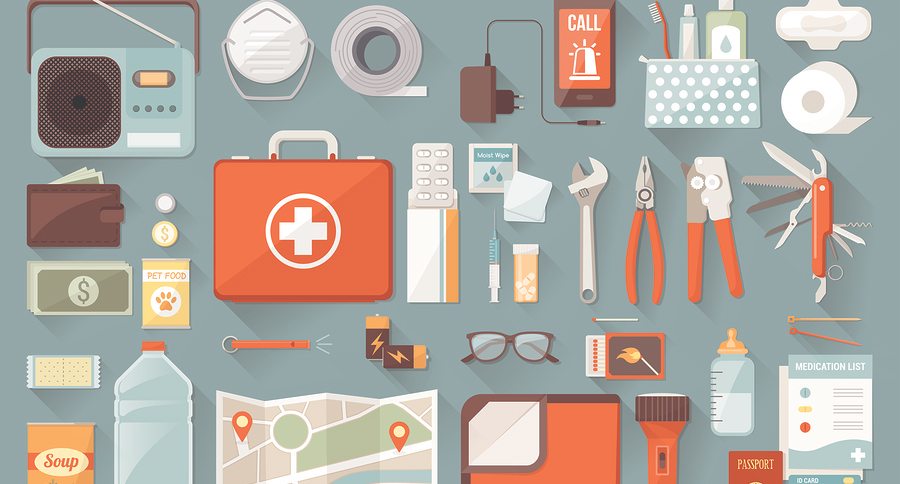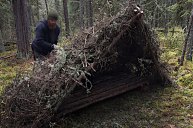Preparing for a disaster with these 12 survival elements will help you and your family survive no matter what the elements may throw at you.
Here is a common sense list of items or elements you need to consider to survive a natural or man-made disaster for a few days or longer.
These are broad categories: for example, under the category of "food," you will want to consider a few things when choosing what kinds of food to stockpile:
- Choose foods that don't need to be refrigerated and that require a minimum or no cooking to prepare.
- Choose foods that are nutrient dense and offer a variety.
- Choose foods based on calories per person.
- Choose foods that your family would like to eat.
Also consider having a short-term (say, three-day emergency supply) and a longer term supply (three to twelve months).
This infographic should give you a good basis upon which to consider your basic survival needs, and build your supplies from there. You can dedicate an area of your home (a spare room or basement area) to storing and maintaining these disaster preparedness supplies. In prepping organization is king.
This type of preparedness is not paranoia, it's common sense. You simply never know when disaster will strike, or how long it will last. You may be forced to get through just a few days without electricity, for example. Or you may be forced to survive for several weeks or even months if something truly catastrophic happens.
Being prepared can not only save you a lot of headaches and hassles, it could literally save your life. At the very least you'll be able to get through a rough spot with a minimum of disruption to your daily life.
This is not wilderness survival preparedness. This is home survival, for you and your family.
Amassing the items you need for a solid disaster preparation supply also doesn't have to cost an arm and a leg. While some items surely will cost some money, you can build on this list over time, doing a little every week or every month.
As important as these elements are in considering what you'll need in the event of an emergency, arguably just as important is having a plan of action where everyone involved is on the same page as to the what, how, when and where to do things.
There is nothing like the peace of mind that comes with knowing that you are well prepared, both mentally and physically, for when emergency situations arise. Disaster may strike, but it doesn't have to be disastrous for your family.
Like what you see here? You can read more great articles by David Smith at his facebook page, Stumpjack Outdoors.
NEXT: How to Make Survival Cordage From Urban Garbage
https://rumble.com/embed/u7gve.v3trbl/





